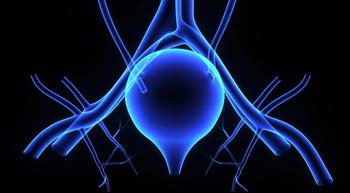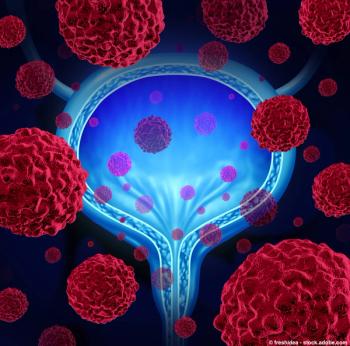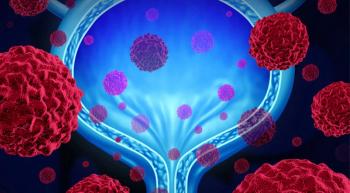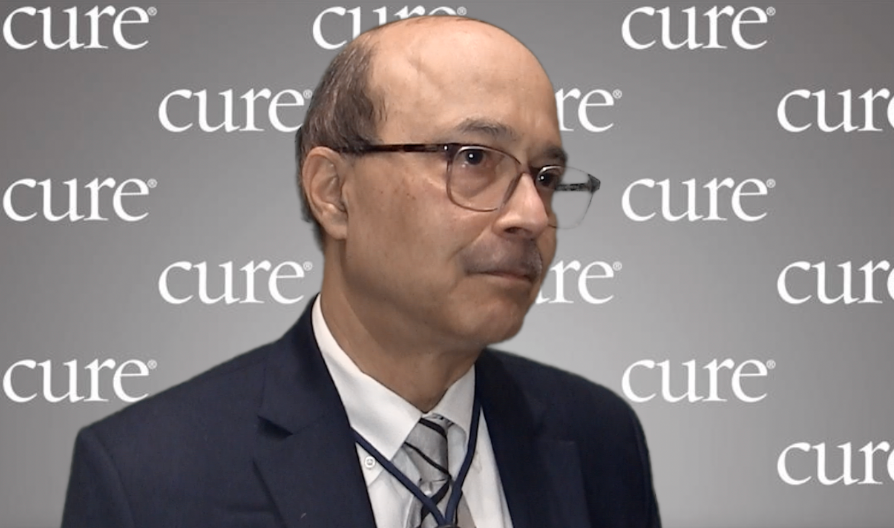
Bladder Cancer
Latest News
Latest Videos

More News

Dr. Balazs Halmos discusses the significance of the approval of subcutaneous Opdivo and what this treatment formulation means for those with solid tumors.

From the death of a TikTok influencer to an update from a “Boy Meets World” star, here is this week’s news.

The investigational anti-PD-1 monoclonal antibody is showing positive topline results from the phase 3 CREST trial.

From the death of folk music star Peter Yarrow of Peter, Paul and Mary to good news from broadcasting legend Dick Vitale, here is this week’s news.

Chemotherapy regimen shows potential to improve survival and reduce need for surgery in patients with muscle-invasive bladder cancer.

Opdivo Qvantig received FDA approval for all previously approved indications in solid tumors.

As we near the end of 2024, CURE is looking back at the top FDA approval stories of the year.

Treatment with UGN-102 has shown promise as a non-surgical alternative when compared with a surgical approach for certain patients with bladder cancer.

From Gerry Turner announcing he has cancer to the return of a Chicago Cubs legend’s disease, here’s what’s happening in the cancer space this week.

Adjuvant Opdivo showed a significant improvement in overall survival and disease-free survival for patients with high-risk muscle-invasive urothelial cancer after radical resection.

Initial Keytruda showed consistent antitumor activity and safety in patients with advanced bladder cancer ineligible for platinum-based chemotherapy.

Treatment with UGN-102 in patients with recurrent low-grade intermediate-risk non-muscle-invasive bladder cancer demonstrated beneficial responses.

The accelerated approval of Trodelvy for patients with metastatic urothelial cancer has been voluntarily withdrawn.

Patients with muscle-invasive bladder cancer who underwent whole pelvis radiation showed improved cancer-specific survival and overall survival.

The use of prophylactic tranexamic acid didn't lead to a reduction in blood transfusion for patients undergoing open radical cystectomy for bladder cancer.

The withdrawal of the FDA accelerated approval for locally advanced or metastatic urothelial carcinoma, a type of bladder cancer, does not affect other indications of the therapy.

The FDA has accepted a new drug application for the intravesical solution of UGN-102 in low-grade intermediate-risk non–muscle-invasive bladder cancer.

Removing more lymph nodes during surgery may also increase the risk for death after surgery in muscle-invasive bladder cancer.

Patients with muscle-invasive bladder cancer experienced safe medical and surgical treatment with the NURE-combo.

Among patients with high-risk muscle-invasive urothelial carcinoma, postsurgical Keytruda extended the time some lived without signs of cancer.

Trodelvy in locally advanced or metastatic urothelial cancer may provide another option for those whose disease progressed after checkpoint inhibitors.

Patients with muscle-invasive bladder cancer who were treated with presurgical chemotherapy may have a 55% lower risk of death, research shows.

Imfinzi and chemotherapy before surgery, followed by Imfinzi after surgery, generated survival benefits in cisplatin-eligible muscle-invasive bladder cancer.

Fatigue is a common side effect that may linger for years following cancer treatment. Experts and survivors talk about ways to help find a balance between life and fatigue.

Patients with locally advanced muscle-invasive bladder cancer may benefit from dose-dense gemcitabine and cisplatin.












